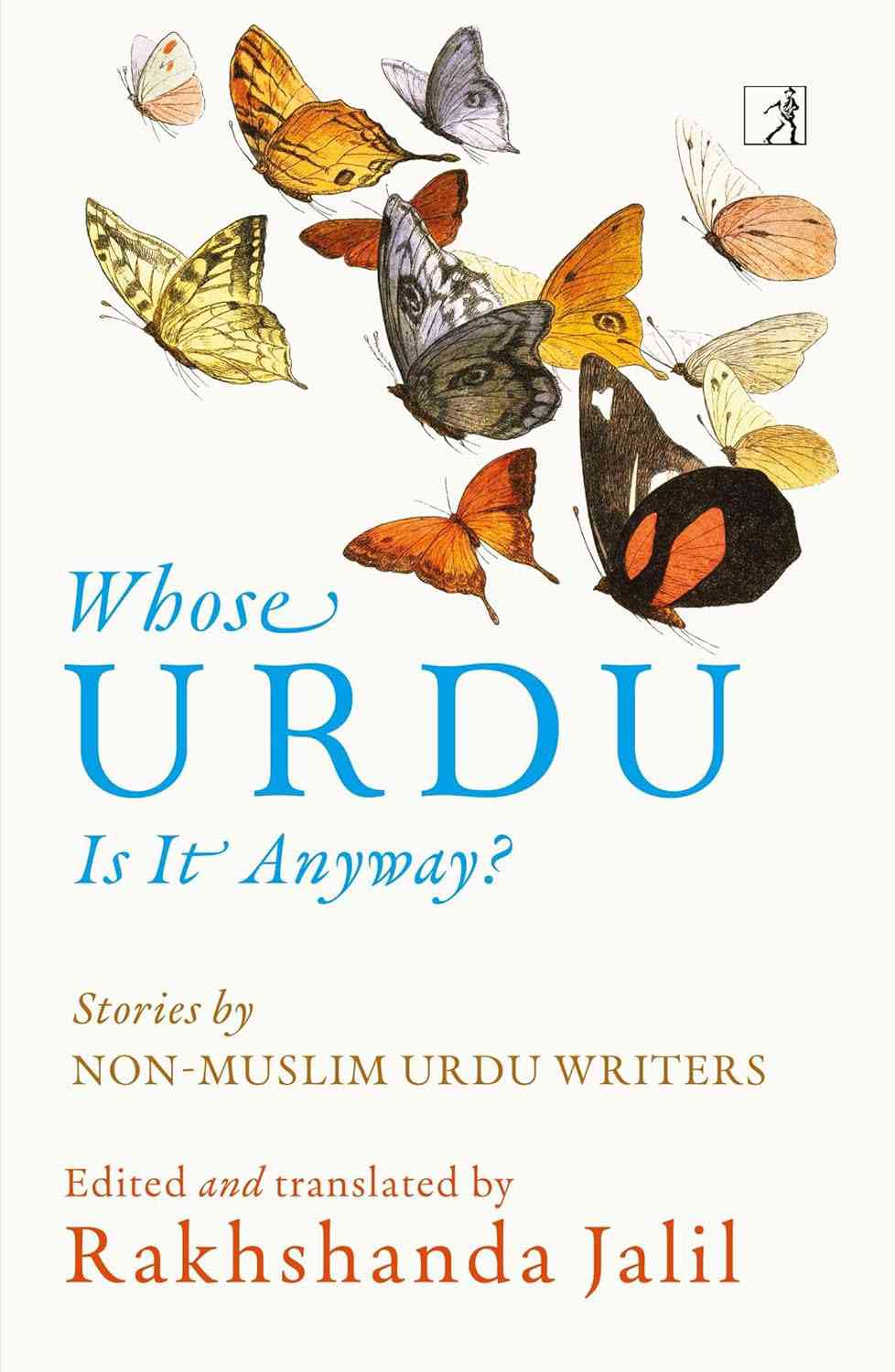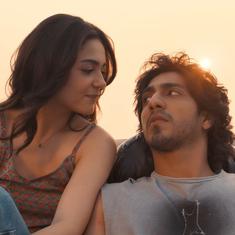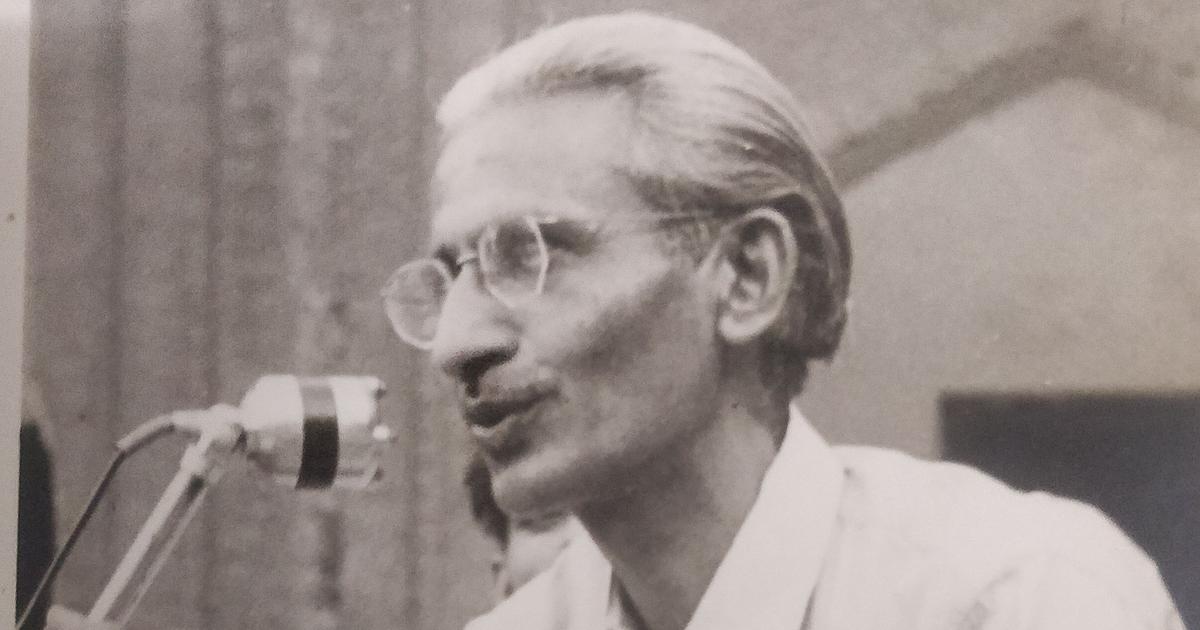I’d said to myself: Why don’t I do my own Bhartiya-karan, that is, Indianise myself, before someone else thinks of doing it? The first problem was my name. Perhaps you don’t know: my name is Iqbal Chand. It occurred to me that “Iqbal” is an Arabic word. What kind of nationalism is it to live in India and have an Arabic name? And so, I changed my name to Kangaal Chand. As it happens, this name is far better suited to my financial condition considering that “kangaal” means “poor”. And why just me, it suits the rest of my country too.
The second problem that arose was of the dress. There was no trace of Indianness in the pants, coat and tie that I wore. In fact, all three were a reflection of my slave mentality. I was amazed that I had worn them all this while. I decided to wear pajamas instead of pants. But then, a certain Persian person told me that the pajama had come to India from Iran. And so, I began to wear dhoti and kurta. But not a kameez, as the word “kameez”, too, is of Arabic origin and it reeks of the stench and stink of an Arab!
The third problem was of hair! After all, was it not treachery against the country, a blatant form of antinationalism, to keep one’s hair fashioned in the English style? I instructed the barber to keep only one lock of long hair at the back of my head and shave off the rest. He did exactly that. I had seen images from ancient India showing men with long and lush moustaches. Following their example, I began to grow my moustache. When my friends saw the large moustache on my somewhat small face, they assumed that I had put on a fake one, possibly because I was acting in some play. Forget my friends, when I saw myself in this new look, I began to feel that I had been created not by God, but Shankar, the cartoonist. But I did not lose heart. One has to do all manner of things to be Indian.
Now we come to my eyeglasses. I asked several pandits: “Is there any mention of eyeglasses in the Ramayana or the Mahabharata?”
They said: “In those days people didn’t eat vanaspati ghee and so their eyesight did not weaken while they were still young.”
I asked: “Did Sugreev, Kunbhkaran, Dushasan and all the rest have such good eyesight that they never felt the need to wear eyeglasses?”
The pandits replied: “All of them applied kajal in their eyes.”
I found the solution to my problem. I took off my spectacles and began to apply kajal. As a consequence, when it got dark, I began to mistake a rope for a snake and a goat for a dog. And when I attempted to read a book, the words turned into black doodles. In a few days, even during the day, I began to mistake one thing for another. I consulted an eye doctor. He advised: “If you don’t wish to become blind, kindly wear your spectacles.”
“But it is not Indian.”
“How does it matter? This watch that you have strapped on your wrist is not Indian and this cigarette that you are smoking isn’t Indian either.”
“You have rightly reminded me. From tomorrow, I shall smoke a huqqah.”
“What have you decided about the watch?”
“I shall take it off.”
“And if you have to know the time?”
“I shall ask someone.”
“Do as you please, but kindly wear your spectacles, or else you will lose your eyesight.”
Thinking that I would simply add to the number of blind people in India if I were to become blind, I went back to wearing my glasses.
One night, as I was watching television, a friend of mine pointed out somewhat caustically, “Television is not Indian.”
Ruing his utter ignorance, I said, “If there was no television in ancient India, how could Sanjay give an eyewitness account of the events of the great war of Mahabharata to King Dhritrashtra?”
“It was a miracle of yog and meditation.”
“You may call it a miracle of yog. I would like to believe that Sanjay had a television set.”
“What happened to that set after Sanjay’s death?”
“It was destroyed in the great war of Mahabharata.”
A few days later, another friend picked on me. He said: “You have done your Bhartiya-karan, but why do you still wear boots?”
“I shall wear a joota from tomorrow.” I found it quite difficult to walk in the joota because it bit my foot terribly. But I paid no heed to the pain.
However, wagging tongues will wag as long as people have something to say. Someone said, “Why do you always go to the office in a bus or a taxi? You should travel in a chariot or a palanquin.”
Annoyed, I replied, “Where are palanquins and chariots to be found in the twentieth century?”
“Then you should walk.”
“The office is eight miles away. How can I go on foot?”
“Then forget this business of Bhartiya-karan.”
“I can’t do that.” In a sly tone, they got back with another quip. “Your wife still wears lipstick and powder. When will her Bhartiya-karan take place?”
The words were bitter but true. I vowed that I would insist that my wife henceforth colour her lips with betel juice and use sandalwood paste instead of face powder.
Now I thought that no one could point a finger at me and say that I was not one hundred per cent Indian. But I was proved to be wrong. One evening, a group of young men came to my house under the pretext of congratulating me. In the course of the conversation, they said to me, “Despite being a complete Indian, why do you have a telephone in your house?”
“The telephone is a necessity for everyday life.”
“But it was not invented in India.”
“Nor was electricity.”
“You are absolutely correct. You must light lamps instead of electric bulbs.”
“How can lamps give sufficient light?”
“Why have you kept chairs in your house?”
“To sit on.”
“The ancient Indians did not sit on chairs.”
“Where did they sit?”
“On the floor.”
After a lapse of a few minutes, one young man spoke up. “Why do you drink tea?”
“What else should I drink?”
“Joshanda.”
“Joshanda is not worth drinking.”
“Fine, then drink milk.”
“I can’t digest milk. Moreover, it is very expensive.”
“Why does your son study in medical college?”
“I want him to become a doctor.”
“Why doctor? Why not vaid?”
“I don’t have any faith in the Ayurvedic system.”
“But that’s pure Indian.”
“Maybe. But I don’t like it.”
“You like all other Indian things, why not this?”
“I don’t have an answer to this question.”
“Then that means that you are not a hundred per cent Indian.”
They went away. But I was left in a terrible dilemma. Despite everything I had done, I had still not done a complete Bhartiya-karan on myself. Will I really have to light lamps? Must I drink joshanda? Will I have to send my son to the gurukul? And even when I have done all this, the nit-pickers will still say: Why do you read an English newspaper? Why do you take penicillin injections? Why do you eat cakes and biscuits? Why do you call your wife “Darling”?
After thinking long and hard, I decided to make an announcement through the newspapers:
“I have done my Bhartiya-karan to the extent it was possible. I do not have the capacity to do any further Bhartiya-karan.”

Excerpted with permission from ‘I Have Done My Bhartiya-karan’ by Kanhaiyalal Kapoor in Whose Urdu Is It Anyway?: Stories by Non-Muslim Urdu Writers, edited and translated by Rakhshanda Jalil.










